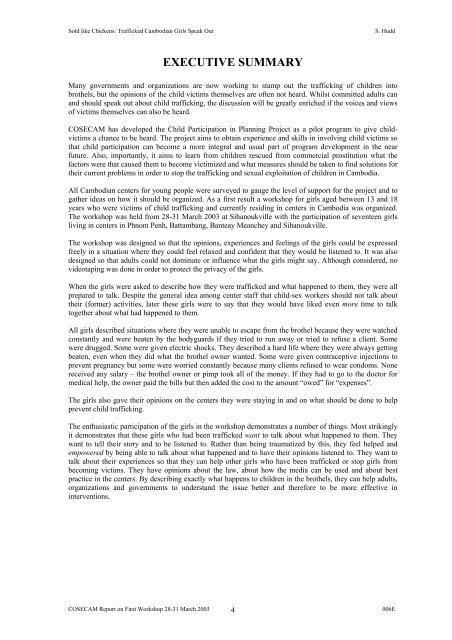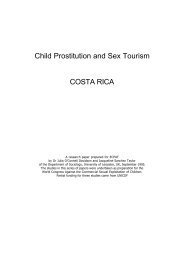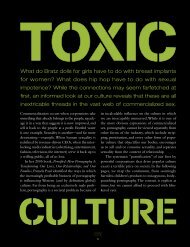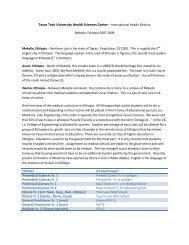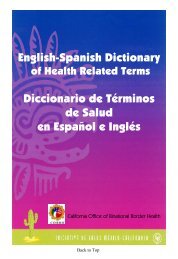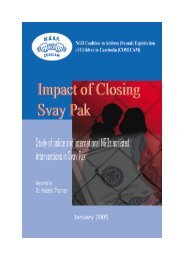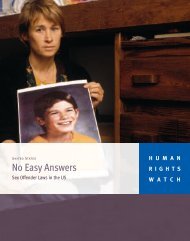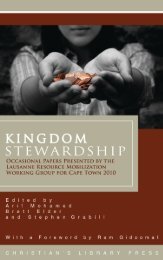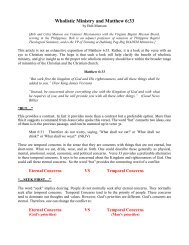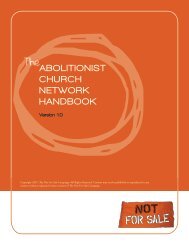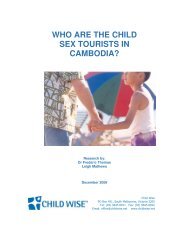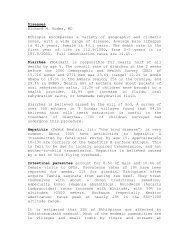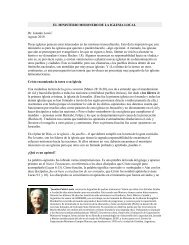COSECAM - World Wide Open
COSECAM - World Wide Open
COSECAM - World Wide Open
You also want an ePaper? Increase the reach of your titles
YUMPU automatically turns print PDFs into web optimized ePapers that Google loves.
Sold like Chickens: Trafficked Cambodian Girls Speak Out<br />
S. Hudd<br />
EXECUTIVE SUMMARY<br />
Many governments and organizations are now working to stamp out the trafficking of children into<br />
brothels, but the opinions of the child victims themselves are often not heard. Whilst committed adults can<br />
and should speak out about child trafficking, the discussion will be greatly enriched if the voices and views<br />
of victims themselves can also be heard.<br />
<strong>COSECAM</strong> has developed the Child Participation in Planning Project as a pilot program to give childvictims<br />
a chance to be heard. The project aims to obtain experience and skills in involving child victims so<br />
that child participation can become a more integral and usual part of program development in the near<br />
future. Also, importantly, it aims to learn from children rescued from commercial prostitution what the<br />
factors were that caused them to become victimized and what measures should be taken to find solutions for<br />
their current problems in order to stop the trafficking and sexual exploitation of children in Cambodia.<br />
All Cambodian centers for young people were surveyed to gauge the level of support for the project and to<br />
gather ideas on how it should be organized. As a first result a workshop for girls aged between 13 and 18<br />
years who were victims of child trafficking and currently residing in centers in Cambodia was organized.<br />
The workshop was held from 28-31 March 2003 at Sihanoukville with the participation of seventeen girls<br />
living in centers in Phnom Penh, Battambang, Banteay Meanchey and Sihanoukville.<br />
The workshop was designed so that the opinions, experiences and feelings of the girls could be expressed<br />
freely in a situation where they could feel relaxed and confident that they would be listened to. It was also<br />
designed so that adults could not dominate or influence what the girls might say. Although considered, no<br />
videotaping was done in order to protect the privacy of the girls.<br />
When the girls were asked to describe how they were trafficked and what happened to them, they were all<br />
prepared to talk. Despite the general idea among center staff that child-sex workers should not talk about<br />
their (former) activities, later these girls were to say that they would have liked even more time to talk<br />
together about what had happened to them.<br />
All girls described situations where they were unable to escape from the brothel because they were watched<br />
constantly and were beaten by the bodyguards if they tried to run away or tried to refuse a client. Some<br />
were drugged. Some were given electric shocks. They described a hard life where they were always getting<br />
beaten, even when they did what the brothel owner wanted. Some were given contraceptive injections to<br />
prevent pregnancy but some were worried constantly because many clients refused to wear condoms. None<br />
received any salary – the brothel owner or pimp took all of the money. If they had to go to the doctor for<br />
medical help, the owner paid the bills but then added the cost to the amount “owed” for “expenses”.<br />
The girls also gave their opinions on the centers they were staying in and on what should be done to help<br />
prevent child trafficking.<br />
The enthusiastic participation of the girls in the workshop demonstrates a number of things. Most strikingly<br />
it demonstrates that these girls who had been trafficked want to talk about what happened to them. They<br />
want to tell their story and to be listened to. Rather than being traumatized by this, they feel helped and<br />
empowered by being able to talk about what happened and to have their opinions listened to. They want to<br />
talk about their experiences so that they can help other girls who have been trafficked or stop girls from<br />
becoming victims. They have opinions about the law, about how the media can be used and about best<br />
practice in the centers. By describing exactly what happens to children in the brothels, they can help adults,<br />
organizations and governments to understand the issue better and therefore to be more effective in<br />
interventions.<br />
<strong>COSECAM</strong> Report on First Workshop 28-31 March 2003<br />
4<br />
006E


